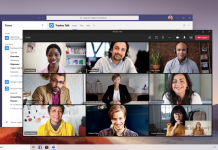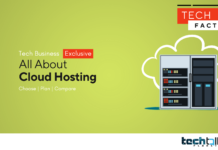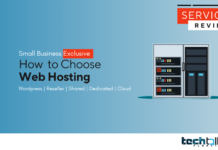
To hide our identities online, we frequently utilise VPNs. This makes it possible to access region-locked material, but more crucially, it conceals our activities from businesses that buy and sell personal information. Only one uncomfortable reality has to be taken into account: your internet service provider (ISP) also gathers private data and is aware that you are using a VPN.
Do not be alarmed; utilising a VPN is entirely legal, and your ISP will not penalise you for doing so. However, your ISP is not a buddy. And sure, when you use a VPN, it does reveal some intriguing information.
Your ISP Monitors Your Online Activity
Your ISP is permitted by law to gather and sell your surfing information if you reside in the United States. It may track your IP address, online activity, and other indicators to create a “profile” of your particular behaviours (even across a big household).
You are being violated in your right to privacy by this. However, it is completely lawful, just like many other web-based data harvesting methods.
ISPs are typically subject to more limitations in places outside of the US. Your ISP is prohibited from collecting or selling your data if you reside in Canada, the EU, the UK, or Australia. ISPs in these areas can still monitor your web activities and are required to report any violations of local laws.
Your ISP can therefore access your online behaviour regardless of where you reside. A VPN is necessary since current laws and regulations aren’t stringent enough to guarantee total privacy. Using public hotspots, which add another set of eyes to your online data, makes this especially true.
How Can a VPN Defend You Against Your ISP?
Your web activity is tunnelled through a distant server using a VPN, or virtual private network. By doing this, you may first prevent websites from seeing your IP address and location. Websites will believe that you are in the UK, for instance, if you connect to a VPN server there.
By limiting the amount of genuine information that websites and advertisers may gather about you, spoofing your location may provide you an additional layer of anonymity. Additionally, it can provide you access to geo-restricted materials like BBC films or Netflix exclusives from South Korea.
However, a VPN does more than merely mask your identity. Additionally, it offers a “safe tunnel” for your online browsing.
A VPN server encrypts all data exchanged between your computer and it, essentially preventing all activity from your ISP (including downloads and uploads). These encryption algorithms are frequently “military-grade,” which means that no existing technology can ever be used to decipher them.
How Much Does Your ISP Know About Your VPN Use?
Your ISP initiates and maintains the connection when you connect to a VPN server. Your ISP is obviously aware when you use a VPN, and it could record such information for marketing purposes.
When utilising a VPN, your ISP may also see how much data you download or upload. The good news is that all of the information is encrypted. Your ISP will only see a tonne of useless data if it attempts to figure out what you’re doing when you’re using a VPN.
That gibberish would need a very long time to decrypt. Unlike your ISP, powerful governments may have access to sophisticated decryption technologies.
To be clear, VPNs are permitted in almost all nations. They are a reliable security tool that both government and corporate workers use on a daily basis. Your ISP has no control over how you use a VPN and probably doesn’t even care if you do.
Remember that VPNs aren’t foolproof. You might easily disclose your online activities to your ISP if you don’t know how to utilise your VPN. I advise making use of secure protocols like OpenVPN and WireGuard, turning on your VPN’s kill-switch (which will disable certain apps in the event that the VPN breaks), and reading the user manual on the website of your VPN provider.
Keep in Mind That VPNs Cannot Ensure Privacy
The advantages of utilising a VPN are clear. You may conceal your browser activities from your ISP, obfuscate the useful information that websites collect, and unblock geographically restricted streaming material.
Regrettably, utilising a VPN does not provide privacy. Trackers and cookies are still used by websites to identify you and gather your data, and if you use a VPN improperly, you could unintentionally reveal your behaviour to your ISP.
Your VPN provider may mistreat you as well. A VPN provider may see everything you do while using its service, and it may gather this data to cooperate with marketers or comply with subpoenas, which is why it’s so vital to investigate security technologies before using them. (And if such a VPN service becomes the subject of a data breach, the names of its clients might be stolen.)
Therefore, I advise locating a VPN service that adheres to the following requirements:
A VPN with a no-logs policy is neither secure nor private.
Independent audits are necessary to verify that a VPN service is not deceiving its clients.
Modern Protocols: Look for a VPN that offers “military-grade” tunnelling encryption using OpenVPN and WireGuard, among other protocols.
A Clear Record: A VPN isn’t serious about security if it has a history of data breaches or has been exposed as deceiving to users.
Some services go above and above if you desire more security. For instance, Mullvad VPN only accepts one-time purchases and doesn’t need users to create accounts. As a result, Mullvad has substantially less information about its customers, making it difficult to gather data in the case of a data breach or court order.
Please be sure that the VPN you choose satisfies the requirements stated above. Otherwise, it respects your privacy less than your ISP does.














































